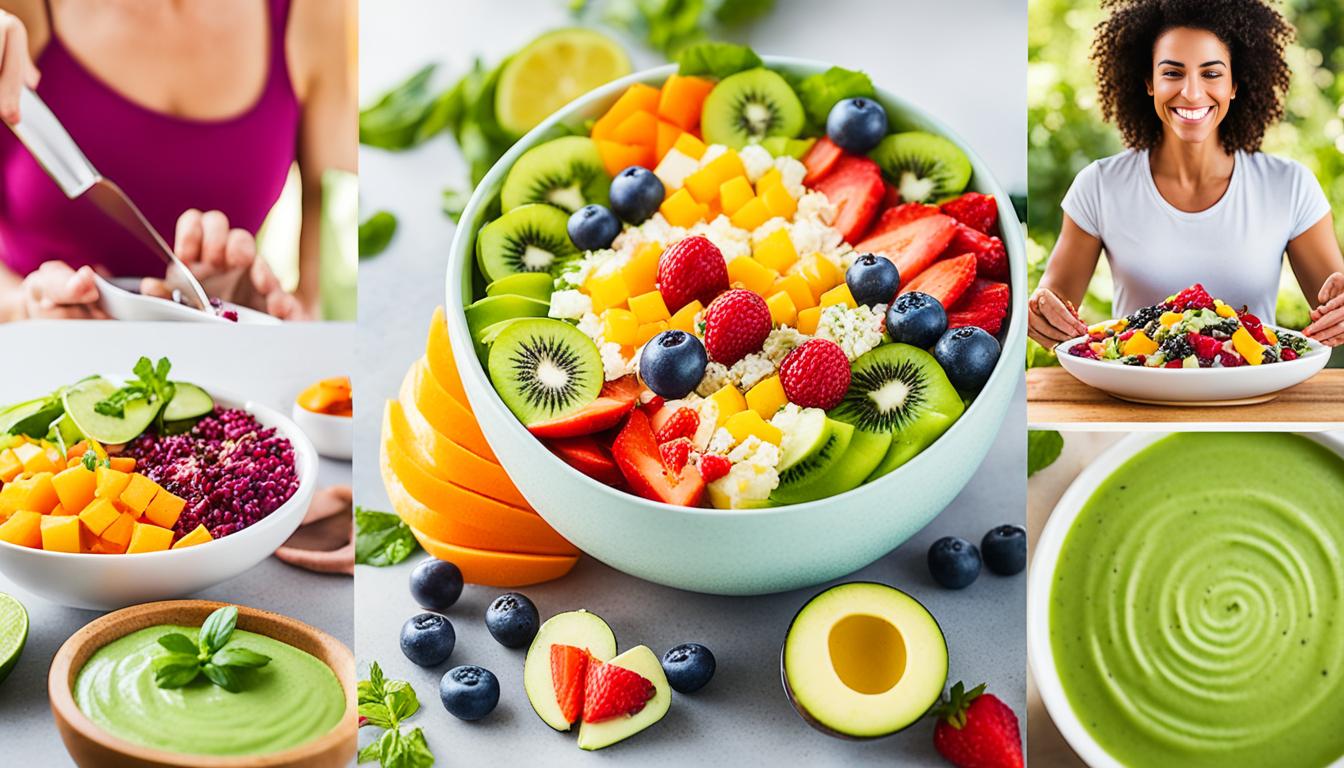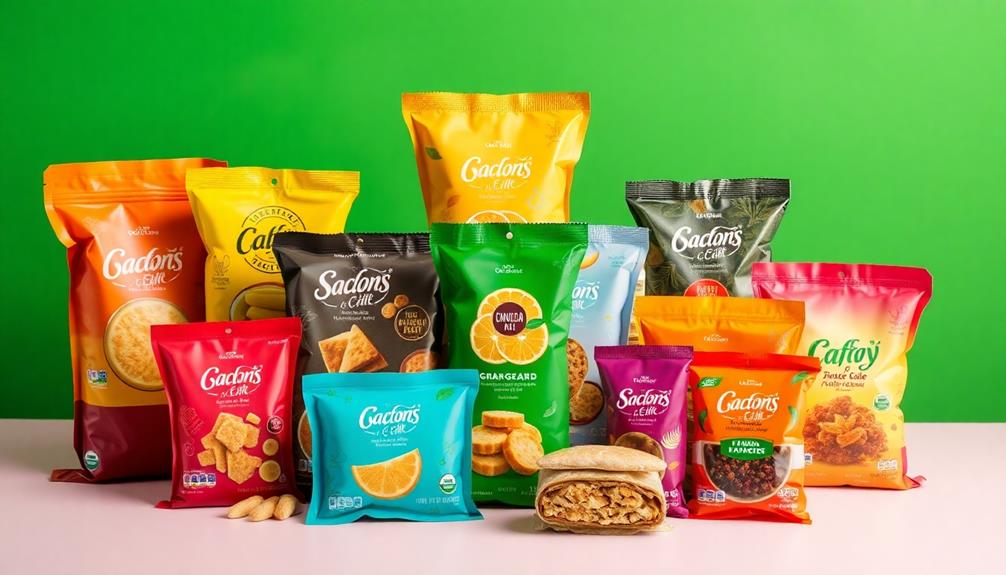Food aversions and phobias can make meals tricky, especially when certain smells or tastes bring back bad memories. You might avoid foods because of their texture or a past experience, like being sick after eating something. Here are some key points to know:
- Aversions often arise from sensory experiences.
- Emotional connections play a big role.
- Allergies can lead to avoidance, too.
- Support from friends and experts can help!
By exploring these feelings and trying new strategies, you can make mealtime happier and healthier. Stick around, and you'll discover more ways to tackle these challenges!
Key Takeaways
- Food aversions often stem from negative associations or traumatic experiences related to specific foods, impacting psychological well-being.
- Sensory processing differences can heighten food aversions, especially in individuals with Autism Spectrum Disorder, making certain textures or smells intolerable.
- Emotional states, such as stress and anxiety, can exacerbate food aversions, reducing enjoyment and influencing meal choices.
- Hormonal changes, particularly during pregnancy, can lead to increased sensitivity and altered food preferences, affecting overall eating behavior.
- Support from healthcare professionals, including therapists and nutritionists, is crucial for managing food aversions and maintaining balanced nutrition.
Definition of Food Aversions

Food aversions are intense dislikes that can make you shun specific foods, often leading to a strong desire to avoid them completely. Imagine biting into a food you once loved, only to feel a wave of nausea wash over you! This can happen suddenly, and it's not just you; many people experience food aversions.
In fact, certain cultural dishes, like Red-Braised Pork Belly, can evoke strong reactions based on individual experiences and memories associated with them.
Here are some key points about food aversions:
- Sensory Experiences: These aversions often arise from how food looks, smells, or feels. One bad experience can change your taste forever!
- Psychological Factors: Sometimes, anxiety or negative memories linked to certain foods can make you feel uneasy around them.
- Eating Behaviors: Food aversions are different from just being picky; they can cause real distress and may even affect your social life.
- Nutritional Deficiencies: If you avoid too many foods, it might lead to missing out on important nutrients.
- Professional Intervention: If your food aversions become overwhelming, chatting with a health expert can help you find solutions.
It's fascinating how our minds and bodies work together when it comes to what we eat!
Causes of Food Aversions

A variety of factors can lead to the development of food aversions, often intertwined with our survival instincts. You might find that food aversions help you avoid harmful or toxic foods that could make you sick.
For instance, certain textures or flavors in foods like Mushroom Masala might trigger a negative response if a bad experience is associated with them. These aversions can pop up quickly and even spread to similar foods. For example, if you have a bad experience with one food, you might steer clear of others that look or taste alike!
Hormonal changes, especially during pregnancy, can also play a role. When expectant mothers experience increased GDF15 hormone levels, it can lead to food aversions as a protective measure.
Additionally, sensory processing differences, like being extra sensitive to taste or smell, can heighten food aversions, particularly for those with Autism Spectrum Disorder (ASD).
Psychological factors, such as stress or trauma, can make food aversions worse, leading to less joy in eating. Sometimes, these aversions might even contribute to restrictive food intake disorders, where you limit your food choices.
Understanding these causes can help you navigate your relationship with food, making mealtime a happier experience for all!
Mental Health Connections

Food aversions can sometimes be linked to how you feel emotionally, like when stress or sadness makes certain foods seem less appealing.
For example, traditional dishes such as Muamba De Galinha may lose their allure during tough times, reflecting how personal feelings can impact food preferences.
If you've ever noticed that a favorite snack doesn't taste as good when you're feeling down, you're not alone!
Understanding these feelings and how your senses react can help you enjoy food again and create a happier relationship with what you eat.
Emotional Triggers and Responses
Emotional triggers like stress, grief, or trauma can greatly amplify food aversions, especially for those already grappling with mental health issues. When you experience strong emotions, they can make certain foods seem less appealing, even in the context of comforting dishes like traditional Brazilian cuisine.
This is especially true if you have anxiety disorders. You might find that certain textures or tastes become overwhelming, leading to more food aversions.
Negative experiences, like getting sick after eating something, can create learned taste aversions, where your mind connects that food with a bad memory. If you've ever felt anxious about trying new foods, you're not alone!
Mood disorders, like depression, can also affect how you enjoy food. You mightn't feel excited about meals anymore, which can lead to a dislike for certain dishes.
Here are some key points to remember:
- Emotional triggers can worsen food aversions.
- Anxiety disorders make you sensitive to food textures.
- Negative experiences can cause learned taste aversions.
- Mood disorders reduce enjoyment of food.
Understanding these connections can help you navigate your feelings about food and find joy in mealtime again. Remember, it's okay to seek support!
Sensory Processing Challenges
Many people struggling with food aversions also face sensory processing challenges that heighten their sensitivity to taste, smell, and texture. This means certain foods can feel overwhelming or even scary!
For many, especially those with Autism Spectrum Disorder, sensory processing makes the world a bit more intense. You might find yourself avoiding certain foods due to food neophobia—fear of new foods. Exploring flavors from diverse cuisines, such as Indonesian sweets like Kue Putu or Dadar Gulung, can sometimes help ease the fear of trying new textures and tastes.
Here are some important points to reflect on:
- Heightened Sensitivity: Strong tastes or unusual textures can lead to food aversions and selective eating.
- Impact on Kids: Research shows about 70% of children with sensory processing issues have food aversions.
- Therapeutic Interventions: These can help! Gradually introducing new foods can make them less scary and more enjoyable.
Addressing sensory processing challenges can open up a world of delicious options. With the right support, you can explore new dietary preferences without fear.
Impact of Food Allergies

Experiencing food allergies can markedly shape your relationship with food, often leading to strong aversions to specific items. When you have a food allergy, you might avoid certain foods to dodge discomfort or allergic reactions. This protective instinct can sometimes lead to nutritional deficiencies, which isn't fun!
It's important to find alternatives that still allow you to enjoy the flavors and textures you love, like a warming Nettle and Potato Soup that's both nutritious and safe for many.
Did you know about 8% of children and 4% of adults have food allergies? Common culprits include dairy, eggs, peanuts, tree nuts, soy, and wheat. If you have multiple allergies, you might face an even bigger challenge, as this can increase food neophobia—the fear of trying new foods.
To keep enjoying meals, it's important to work with healthcare providers who can help you understand your triggers. Together, you can create a plan for balanced nutrition, ensuring you get all the nutrients you need. Remember, it's possible to find delicious alternatives that keep you safe and satisfied!
Here are a few tips to navigate food allergies:
- Always read ingredient labels.
- Ask about allergens when dining out.
- Experiment with allergy-friendly recipes.
With a little creativity, you can still enjoy tasty meals while staying safe!
Symptoms and Triggers

When it comes to food aversions, your feelings can really take center stage!
You might notice that certain smells or tastes trigger strong reactions, like feeling sick or even gagging, and this can make mealtime a bit tricky.
For instance, someone might've a strong aversion to dishes like Umeboshi due to their tart flavor.
Plus, things like hormones or past experiences can play a big role in what foods you avoid, making it important to understand these symptoms and triggers together!
Emotional Responses to Foods
Food aversions can trigger intense emotional responses that go beyond mere dislike. When you encounter certain foods, you might feel a wave of nausea, anxiety, or even distress. These feelings often stem from the sensory characteristics of the food, like its taste, smell, or texture.
For instance, the unique flavors in traditional Ethiopian dishes, such as Tej (Honey Wine), can be polarizing and evoke strong reactions in some individuals. If you've ever had a negative experience related to a specific dish, you might find yourself gagging or feeling upset just at the thought of it.
Psychological factors play a big role, too! Stress, trauma, and mood disorders can heighten sensitivity to certain foods, making reactions stronger.
For kids, especially those with Autism Spectrum Disorder, the emotional responses can become even more intense. You might see crying or tantrums when they face their aversive foods, showcasing how deeply rooted these food-related feelings can be.
Understanding these emotional responses helps you recognize that it's more than just picky eating. It's about comfort, safety, and past experiences.
Common Sensory Triggers
Identifying common sensory triggers can greatly enhance your understanding of food aversions. These triggers can create emotional reactions that might make mealtime a bit tricky. For instance, the texture of certain foods, like the creamy crema used in traditional dishes such as Chilaquiles, can evoke strong feelings of discomfort.
You might notice that certain smells, tastes, or textures can evoke strong feelings, like nausea or even gagging. Here are three common sensory triggers you might encounter:
- Strong Smells: Foods with powerful aromas can be overwhelming, leading to avoidance.
- Unpleasant Textures: Foods that are slimy, gritty, or mushy can make you feel uncomfortable and lead to food aversions.
- Intense Tastes: Spicy or bitter flavors can trigger negative experiences, making it harder to accept certain foods.
If you find yourself feeling anxious during mealtime, you're not alone! Sensory overload from noisy environments or visual distractions can increase mealtime anxiety.
Remember, understanding these sensory processing challenges is the first step toward better food acceptance. By recognizing your triggers, you can create a more enjoyable dining experience for yourself and your family.
Hormonal Influences on Aversions
Hormonal influences can markedly shape your experience with food aversions, especially during pivotal life stages like pregnancy or menstruation.
During pregnancy, your body increases the hormone GDF15, which can heighten your sensitivity to certain foods. This is a protective mechanism against potential toxins, helping you make safer dietary choices. You might notice that your appetite changes, and foods you once loved may suddenly seem unappealing! For example, many expectant mothers find themselves craving specific flavors or textures, which can sometimes lead to unusual food combinations.
Additionally, seasonal festivities may introduce new food experiences, like spooky snacks for Halloween, that could influence your cravings.
Similarly, hormonal changes during your menstrual cycle can also affect your cravings and aversions. Some women report different dietary preferences depending on where they're in their cycle.
Don't forget about psychological stressors! Stress can raise cortisol levels, which may further influence your appetite and lead to food aversions. If you're experiencing PMS, hormonal imbalances can create specific food phobias, impacting your overall nutrition and well-being.
Here's what you might experience:
- Changes in dietary preferences
- Increased sensitivity to certain smells or tastes
- Fluctuations in appetite
These hormonal shifts are natural, and understanding them helps you navigate your feelings about food with a positive attitude! Remember, it's all part of the amazing journey of your body!
Strategies for Overcoming Aversions

Overcoming food aversions can feel like a challenging task, but implementing effective strategies can make the process easier and more manageable. You can start feeling more comfortable with those tricky foods by using some fun techniques!
- Sensory Exploration: Begin with small steps. Smell, touch, or even look at the foods you avoid. This helps you get used to them without pressure.
- Positive Reinforcement: Celebrate your efforts! Reward yourself when you try a new food, even if it's just a tiny bite. This turns trying new things into a fun game, reducing anxiety around food aversions.
- Tailored Approaches: Think about talking to a nutritionist or therapist. They can offer personalized support and help you maintain a balanced diet, ensuring your nutritional intake is on track, even if you're avoiding certain foods.
Long-term Management Techniques

Effectively managing food aversions often requires a combination of strategies that you can integrate into your daily life. Here are some fun ways to tackle this challenge!
- Gradual Exposure Techniques: Start by introducing small amounts of the food you dislike. This could mean just a tiny bite or even just being around it during mealtime. Over time, you'll feel less anxious!
- Mindfulness Practices: Try deep breathing or gentle meditation before meals. This helps you notice your feelings about food without judgment. It's like giving your mind a cozy hug!
- Positive Reinforcement: Celebrate every small victory! If you try a new food, reward yourself with a fun sticker or a high-five. This encourages you to keep exploring new tastes.
- Check-Ins with Healthcare Professionals: Regular chats with a dietitian can help you create a balanced diet, ensuring you get the nutrients you need despite your food aversions.
- Dietary Variety: Keep your meals colorful and exciting! Trying new recipes can add joy and make mealtime a fun adventure.
With these long-term management techniques, you can turn food aversions into opportunities for discovery and enjoyment!
Support and Resources

Dealing with food aversions can feel isolating, but you don't have to go through it alone. There are plenty of support and resources available to help you navigate these challenges. Connecting with others who understand your experience can be incredibly uplifting.
Here are three great options:
- Support Groups: Joining a support group can provide a safe space for sharing experiences and coping strategies. You'll meet others who truly get what you're going through!
- Professional Resources: Seek out nutritionists and therapists who specialize in food aversions. They can offer tailored guidance and strategies to help you manage and gradually overcome your aversions.
- Educational Materials: Check out resources from reputable health organizations like the Cleveland Clinic. They provide valuable insights into the psychological aspects of food aversions and practical tips for management.
Don't forget to explore online forums and communities, too! These platforms can connect you with individuals facing similar challenges, creating a sense of belonging.
Workshops and seminars hosted by healthcare professionals can also equip you with essential coping strategies. Remember, you're not alone, and support is just a step away!
Frequently Asked Questions
What Is the Psychology Behind Food Aversion?
Food aversion often stems from negative past experiences, like illness. When you associate a specific food with discomfort, your mind triggers avoidance, making you less likely to consume that food again, even years later.
What Is Food Phobia in Psychology?
Imagine a castle surrounded by unfamiliar dishes; food phobia's like a guarded gatekeeper, preventing you from tasting new flavors. It's an intense fear that keeps you from exploring the banquet of culinary experiences awaiting you.
What Type of Psychology Is Taste Aversion?
Taste aversion falls under behavioral psychology. You learn to associate certain foods with negative experiences, leading to an aversion. It's a powerful example of how your mind influences your preferences and choices in eating.
What Causes Food Neophobia?
Imagine a child staring at broccoli like it's an alien. Food neophobia stems from genetic factors, sensory experiences, and environmental influences, making unfamiliar foods seem intimidating and often leading to avoidance. You're not alone in this!
Conclusion
Food aversions can seem tough, but remember, you're not alone! Did you know that about 25% of kids have a food aversion at some point? That's a lot of friends sharing your experience! With understanding and support, you can tackle those tricky tastes together. Try exploring new foods with family or even making it a fun game. Embrace the adventure of flavors, and who knows, you might discover a new favorite dish you never thought you'd love!









